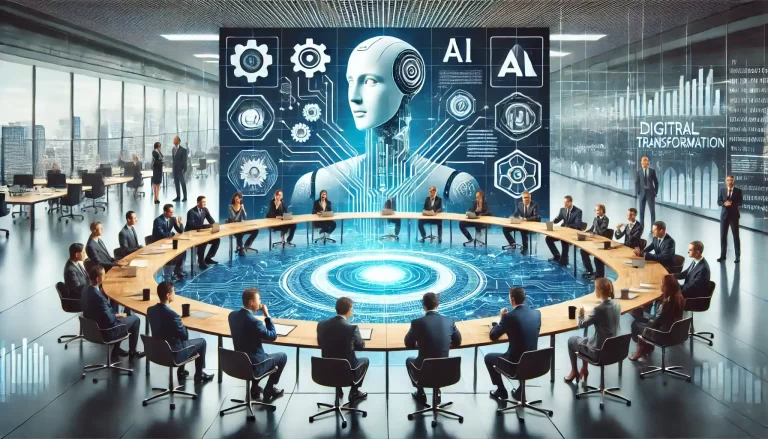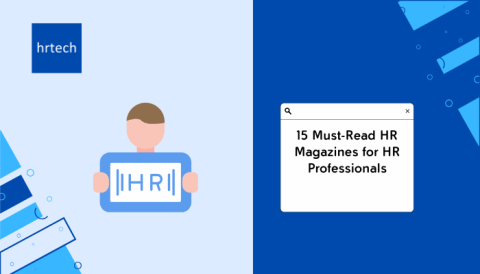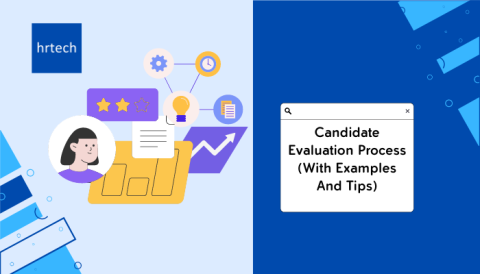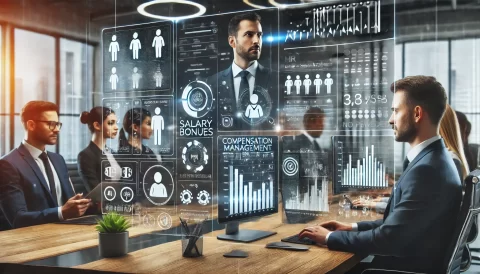by Vinay Johar, CEO-RChilli
Staying abreast of the curve is crucial in the ever-evolving Human Resources (HR) landscape. One technological advancement that’s making waves and deserves a closer look from HR leaders is Generative AI. In this blog, let’s explore what generative AI is, how it can revolutionize HR practices, and provide real-world examples to illustrate its potential.
What is Generative AI?
Generative AI is a subset of AI that uses algorithms to generate content, data, or information. Unlike traditional AI, which relies on predefined rules and patterns, generative AI can create new, contextually relevant content from scratch.

How Can Generative AI Help in HR?
HR professionals juggle various tasks daily, including but not limited to recruiting and welcoming new employees, fostering employee engagement, and overseeing talent management. Generative AI can significantly enhance these processes:
- Resume Screening and Candidate Matching: Generative AI can analyze resumes and job descriptions more effectively than humans, ensuring a more precise match between candidates and job openings. This streamlines the recruitment process, saving time and reducing human bias.
- Employee Training and Development: Generative AI can create personalized training materials, quizzes, and courses tailored to individual employee needs. This boosts engagement and ensures that training is more effective.
- Automated Communication: Chatbots powered by generative AI can handle routine HR inquiries, freeing up HR professionals to focus on more complex tasks. They can also provide 24/7 support to employees.
- Performance Appraisals: AI-driven tools can assist in conducting fair and unbiased performance appraisals by analyzing a wide range of data, including project outcomes, peer feedback, and personal goals.

Real-World Examples of Generative AI in HR
- Chatbots for Employee Support: Leading organizations across various industries have implemented chatbots powered by generative AI to handle HR-related queries. These chatbots excel at answering questions regarding benefits, policies, and procedures, offering immediate assistance to employees.
- Resume Parsing and Candidate Matching: Prominent platforms within the professional networking and HR management domains leverage generative AI to scan resumes, extract pertinent details, and efficiently match candidates with suitable job openings.
- Personalized Learning: Educational technology (EdTech) platforms widely incorporate generative AI to provide personalized course recommendations and tailor learning materials based on user backgrounds, career aspirations, and preferred learning styles.
The Functions of Generative AI in HR
Generative AI can perform several crucial functions in HR, including:
- Content Generation: Creating job descriptions, training materials, and personalized employee communications.
- Data Analysis: Analyzing large volume of datasets to identify trends, patterns, and insights for better decision-making.
- Communication: Engaging with employees and candidates through chatbots and automated messaging systems.
- Task Automation: Streamlining repetitive tasks such as scheduling interviews, sending reminders, and compiling reports.
Benefits of Generative AI in the Workplace
Enhanced Efficiency: Generative AI automates time-consuming HR tasks, thus, allowing HR professionals to focus on strategic initiatives.
Reduced Bias: AI-driven processes are less susceptible to human bias, promoting fairer recruitment and performance evaluations.
Personalization: Generative AI can deliver tailored employee learning and development experiences, resulting in higher engagement and skill acquisition.
Data-Driven Decision-Making: Generative AI empowers HR leaders to make more informed decisions and predictions by analyzing vast amounts of HR data.
Scalability: As organizations grow, generative AI systems can scale alongside, handling increased workloads without proportional increases in HR staff.
The Future of HR with Generative AI
As generative AI evolves, its impact on HR will only grow. HR leaders who embrace this technology will be better equipped to attract, retain, and develop top talent. However, it’s essential to implement generative AI ethically and transparently, addressing concerns about data privacy and algorithmic bias.
Finally, generative AI can reshape HR practices by making them more efficient, data-driven, and personalized. By harnessing the power of AI to automate routine tasks and enhance decision-making, HR leaders can usher in a new world of HR excellence that benefits both organizations and their employees. The future of HR is here, and it’s generative AI-powered. Are you ready to embrace it?
About the author:
Vinay Johar is CEO and Founder at RChilli Inc. He is a serial entrepreneur, and RChilli is his third venture.
As an accomplished entrepreneur, sales leader, and market strategist, he spends most of his time with enterprises, mentors, and thought leaders to understand bottlenecks in the recruitment process and solves them with niche products.
Vinay is passionate about bringing innovative solutions to the HR Tech industry. He wanted to create products or services with minimum liabilities and minimum resources and sell them globally to fortune companies. While researching for his core product, he found that the companies are selling a resume parser as a luxurious product. This was the turning point that motivated Vinay to enter the HR Tech space with resume extraction as a commodity and make it affordable.
With the right niche and technology, RChilli is now the trusted partner for Parsing, Matching, and Data Enrichment. At present, it is serving 1600+ customers in more than 50 countries across the globe. Where a traditional recruitment process takes 45 days to close a job, RChilli is working on a mission to help recruiters to close it in less than 3-4 hours.





